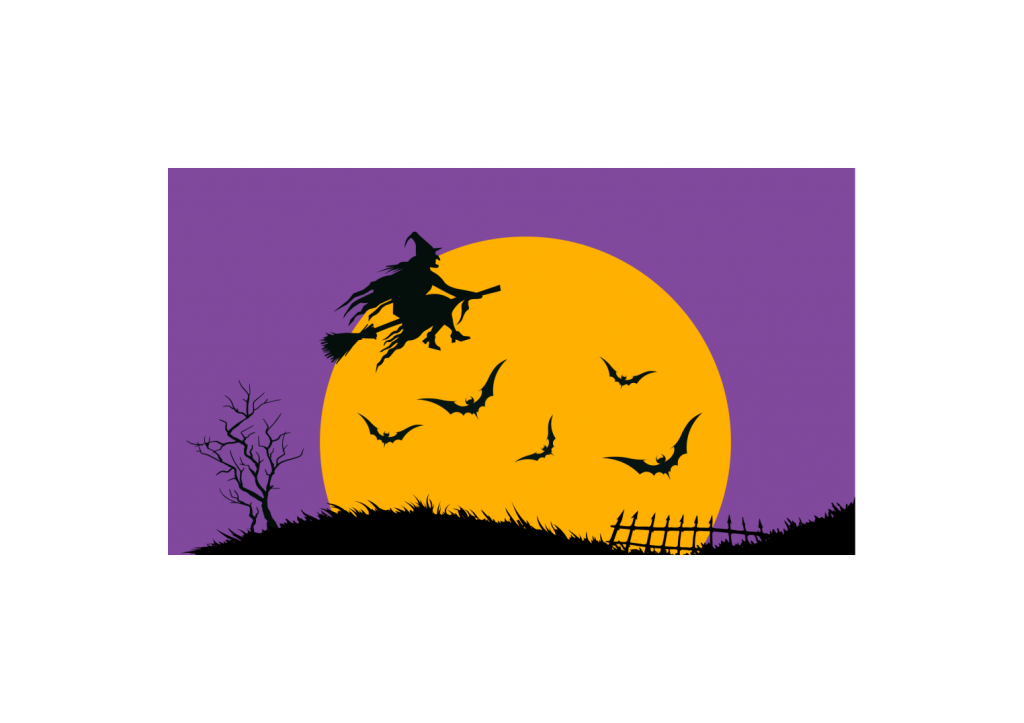From “Witch” to “Ghoul,” Here’s How These Spooky Figures Got Their Names

⚡ Quick summary
Trace the name and a bit of history of some of the most haunting figures that originate not just in language but also myth, religion, and literature. Explore the links between ghosts and poltergeists, uncover how ghoul ended up with the silent H, and see why witches and warlocks diverged in meaning. This eerie article is sure to give you chills and thrills. Be sure to see through the whole thing.
Ever wonder how some of your favorite spooky figures got their names? The creatures that prowl around in our nightmares also appear in our dictionaries, and the stories of their monikers are as rich as their legends. Find out how ghost is related to poltergeist, why monsters were once seen as bad omens, and which graveyard dweller’s name took a strange journey from Arabic to English. You’ll be haunted by these realizations!
Monster
The word monster comes from Latin monstrum, which meant “a divine omen, a sign from the gods that something wondrous or horrifying was about to happen.” Its root, monēre, means “to warn,” reflecting the idea that you should watch out for these creatures. In the ancient world, unusual animals or human deformities were often interpreted as omens, so the meaning slowly shifted from “sign from the gods” to “unnatural creature.”
Ghost
Ghost comes from Old English gast, which originally meant “breath, spirit, or soul.” Christianity pushed the word toward sacred meanings like the Holy Ghost, while the sense of a dead person’s apparition emerged only in the 14th century. Printers in the early modern period added the silent “h,” copying Dutch spelling conventions and giving us our current form. Ghost shares roots (and the same H for the same reason) with aghast and ghastly, both invoking the sense of terror or surprise that leaves you breathless. The German word Geist is also closely related to ghost, and it shows up in poltergeist, which literally translates to “rumbling ghost.”
Ghoul
Ghoul crept into English in 1786 through William Beckford’s novel Vathek, a Gothic fantasia that depicted graveyards, demons, and plenty of supernatural indulgence. Despite his thoroughly English name, Beckford wrote in French, and he used the brand-new French word goule in one of the novel’s many tales. That word had been adapted from the Arabic ghul, a desert-dwelling demon said to rob graves and feast on human flesh. When Vathek was later translated into English, the new word goul gained currency. Within a few years, other writers, likely assuming (incorrectly) that the word was closely related to ghost, began adding the silent H.
Vampire
The word vampire entered English in the early 1700s, right when central Europe was seized by a vampire panic. Reports circulated from Serbia of corpses found intact and bloodied after burial, leading to exhumations, stakings, and pamphlets across the continent. German writers adopted the Hungarian word vampir, which some linguists think could be related to ancient words describing thrusting or biting. Whatever its origin, the image stuck: a bloodsucker who rises from the grave. The spelling vampyre first appeared in English in a 1734 travel account later published in The Harleian Miscellany, laying the groundwork for Gothic literature’s most enduring figure.
Witch (and Warlock)
Old English distinguished between wicce (a female sorcerer) and wicca (a male sorcerer). In early usage, the terms referred to diviners and charm-workers, not exclusively women. King Alfred’s 9th-century code of laws listed several kinds of witches, including gealdorcræftigan (“charm-makers”) and scinlæce (“phantom-physicians”). Elsewhere, we find records of women dubbed lybbestre (“poisoners, potion-makers”). Over the centuries, the pronunciation of wicce shifted to witch, and the word was increasingly used to refer to women only. The male-specific word warlock, coming from the Old English wærloga (“oath-breaker”), stepped in to fill the semantic gap. In the 20th century, an English folklorist resurrected the word Wicca to describe a system of neo-pagan beliefs.
Werewolf
A werewolf is literally a “man-wolf,” from Old English wer, “man” plus wulf, “wolf.” This straightforward compound word perfectly captures the transformative blending of man and beast. Folklorists note that legends of humans turning into wolves have been told for thousands of years, with variations across nearly every wolf-haunted culture. The inherent tension between human reason and animal instinct lives on in werewolf, even as its linguistic origins as a “man-wolf” have been obscured over the centuries.